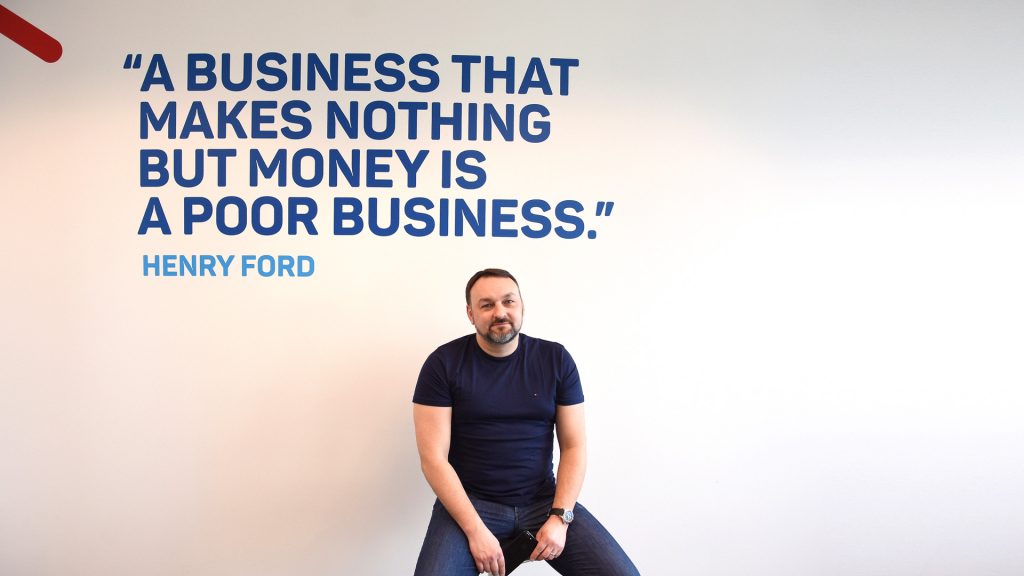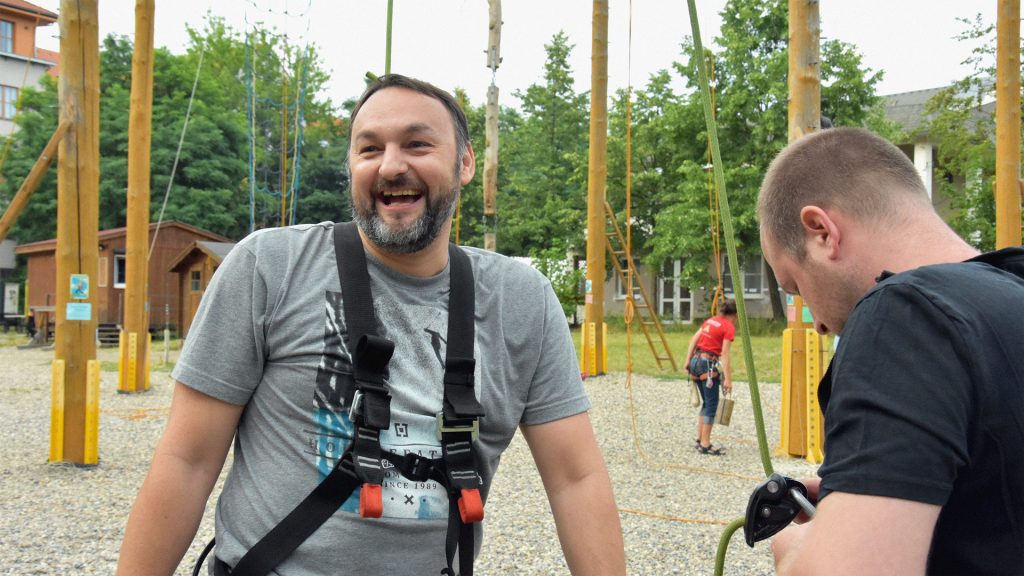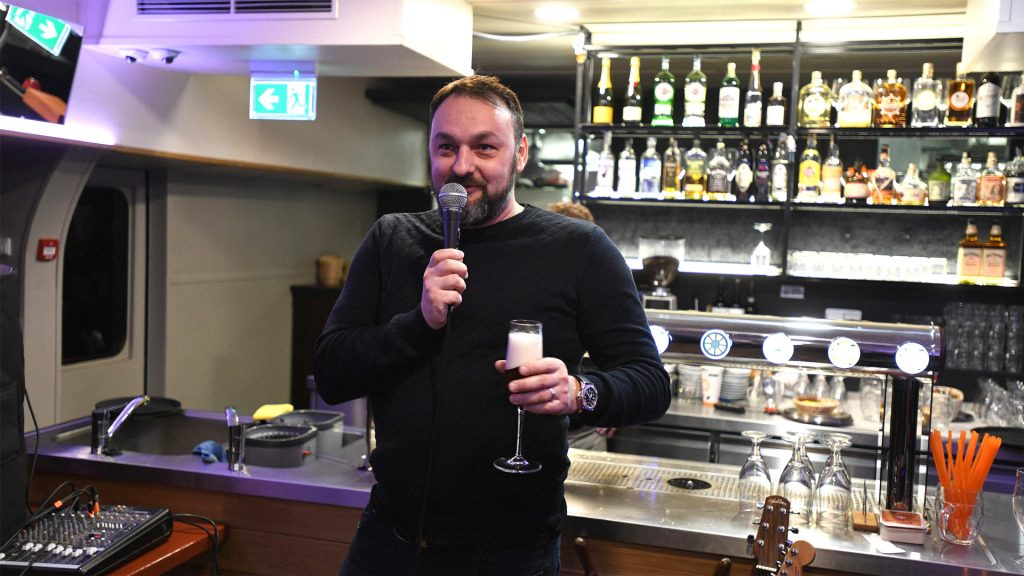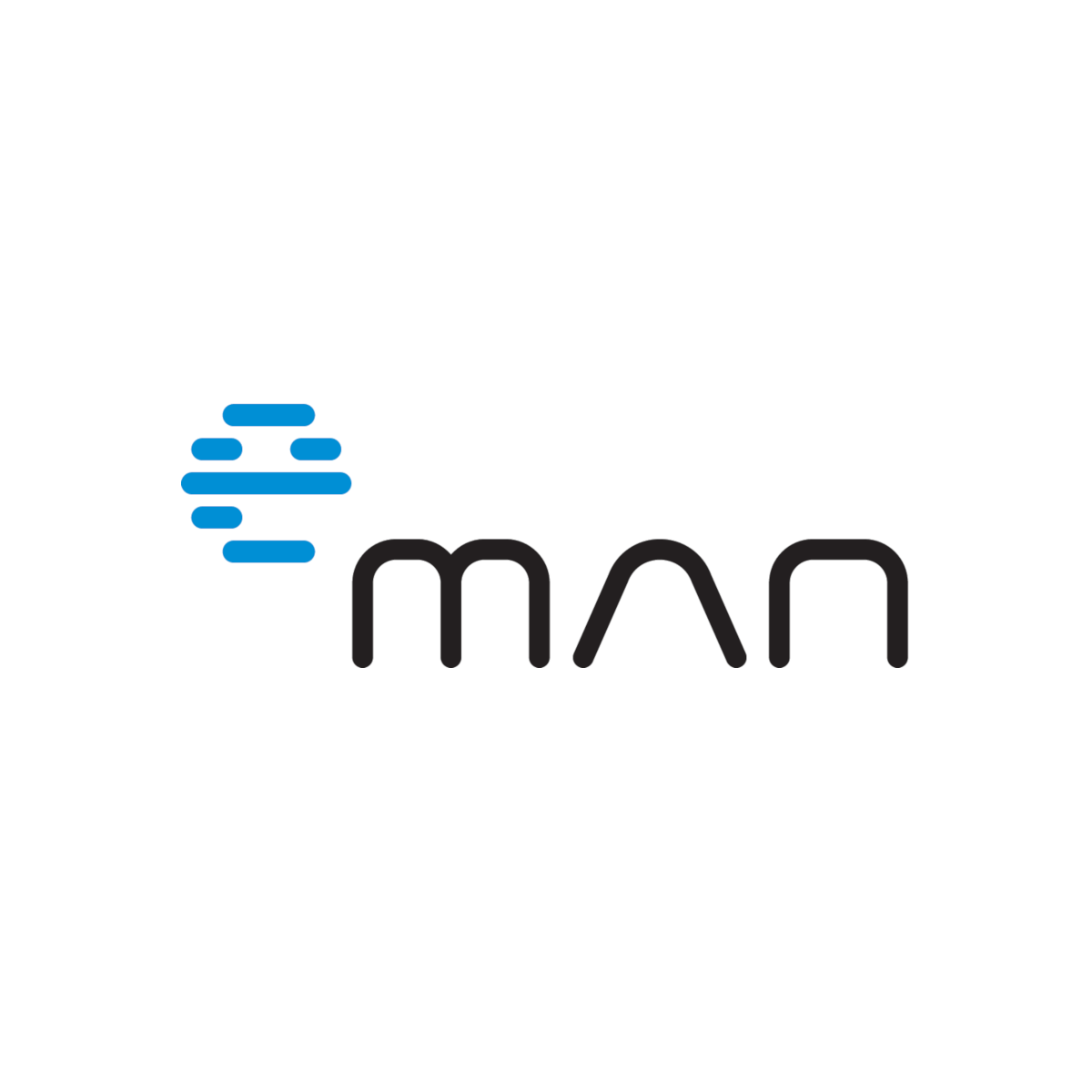How did a marketing and a sales person happen to set up an IT company? And how did they lose the first project? In an interview with our CEO and founding father you will discover how eMan got its name and what the plans are for the company. Discover our story, leading from the valley of death to operating on foreign markets.
Jiri Horyna: “Give it to eMan”
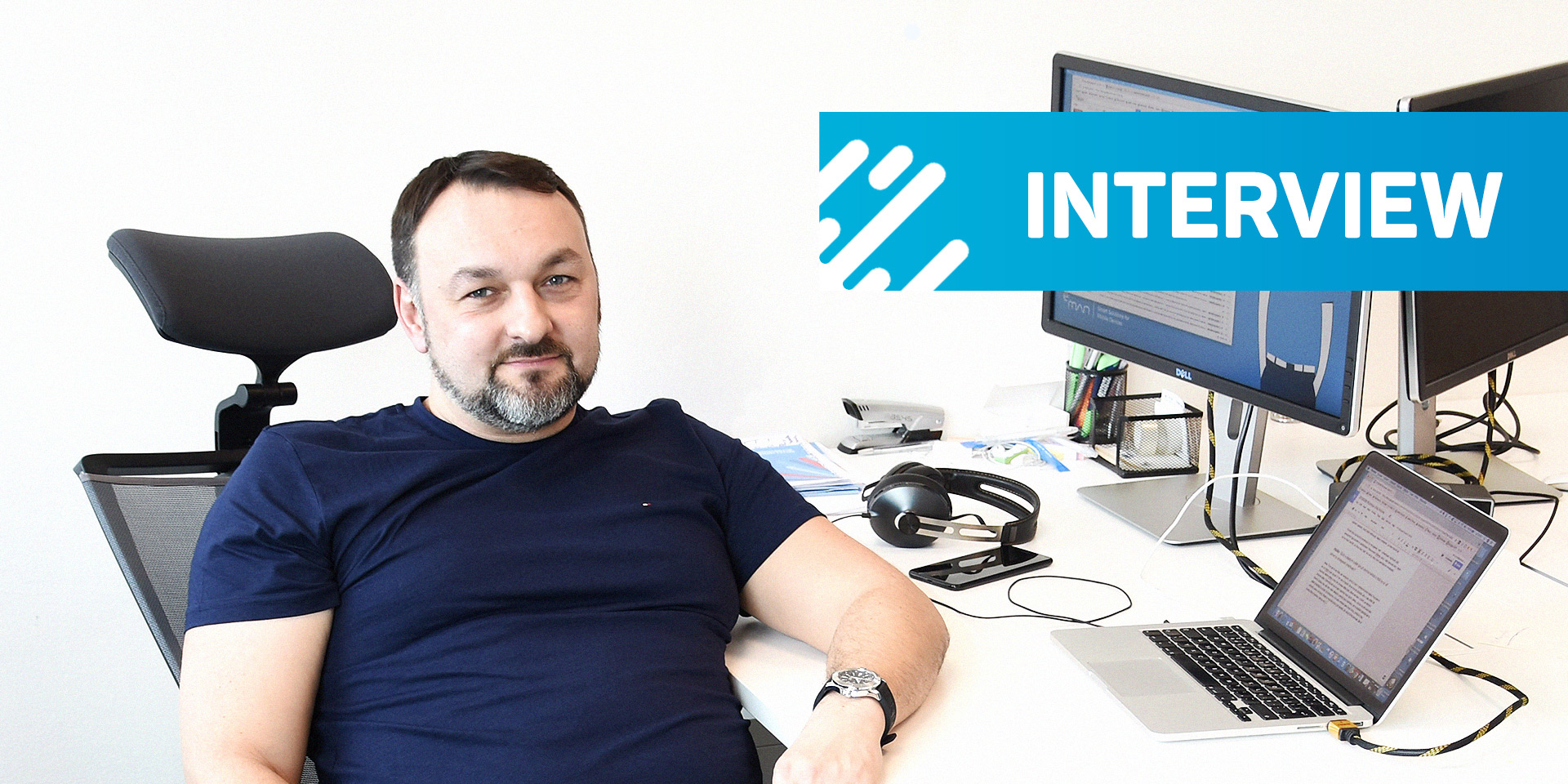
Jiri Horyna, eMan’s CEO, is also one of its four owners. How far back does your history date at eMan?
I am hoping none of my colleagues get offended but I regard myself as the spiritual father of eMan. I met Tomas Cermak at Český rozhlas about 15 years ago. I was recovering there from a managerial position that I’d had at a huge Czech company. It took me about a week to realize that working at a radio station is not a very good fit for me; I’ll never be a real “radio man”. Nonetheless, I spent two enjoyable years there.
It was at Rozhlas where I first got a vision to establish my own company, to work as I see fit with people I like and want to work with; to actually leave something behind. But I never wanted to do it alone and searched for a partner from the very start. I selected three colleagues who worked with me at similar positions and I constantly kept persuading them to start something of our own.
In the end, I shook hands with Tomas Cermak and actually he was the one who gave me the idea that IT is the right field with the right future. There were no smartphones at that time; I think I owned the immortal Nokia 5110. Tomas had an idea to try something in the field of mobile technologies. Back then all magazines had at least one page of advertising selling ringtones or something similar.
So we came up with “SMS jízdenky” (SMS Tickets), a concept that we developed and got a utility model for. We started to offer this to Prague Public Transit Co. Inc. (DPP) where I managed to collect contact information of the important people. After a while they suggested that we should find a partner, implying that two boys who created an S.R.O. are not an ideal partnership.
“After a while they suggested that we should find a partner, implying that two boys who created an S.R.O. are not an ideal partnership.”
We had a meeting with Vladimir Kovar, the owner of Unicorn, where a friend of my brother worked, and we tried to push this idea through for a time. The effort proved unsuccessful but we ended up working for Unicorn. And a few years later SMS Tickets were launched; only without us.
We invested a couple years of our life into that thing, and finally, on the day when our utility model expired, DPP held a ceremonial press conference during which they launched the SMS Tickets in a form identical to what we presented but by a different provider. And it also used a domain which we let go a few months earlier because we thought that the time for SMS Tickets had already passed. It got even more bittersweet for us because our friends kept calling us the whole month after with congratulations because they all thought that we finally landed a deal and launched the project.
I really got into exclusively IT at Unicorn, where my brother Jan Horyna was already working and, about a month later, Michal Kosek also joined as a developer. Here we spent around six and a half years and experienced the launch of Facebook and, most importantly, introduction of the iPhone by Steve Jobs. That was a turning point for me that changed my perception of IT and it reawakened my desire to have my own company and my own way. Therefore we resurrected eMan with Tomas and started looking for a new, but this time “smart”, project for mobile devices.
Tomas found out that a start-up called Groupon was starting to catch on in America. We thought it to be an interesting concept and that it might be a good idea to start a Czech mobile clone of this service based on geolocation. We named the project mKupon. This is how we intended it to work: Imagine there’s a cinema with half of the seats not sold just before the show. So they log into their web account and offer a discount on the tickets which will be automatically displayed on mobile devices of all registered users who opted to receive information about cultural events in a given area.
Neither Tomas nor I are developers so we needed someone for the actual development. We asked Michal Kosek, who over time became a chief of one of the Unicorn subsidiaries that was in charge of their data centres. Together with three other subsidiaries they fell under me from the organizational point of view and we became very good friends with Michal over that time, supporting each other very well. In any case I did not know that much about the technicalities of the data centres, so I had no other choice than befriending Michal anyway 🙂
“Neither Tomas nor I are developers so we needed someone for the actual development.”
We offered a share in eMan to Michal and he brought in his school friend Martin Dohnal, who, by all means, was one of the best people ever passing through eMan. He started learning development for iOS directly on mKupon at first. But then we realized that this solution is quite big considering it was our first project and we decided to go for a smaller app as our first project, just to try out the development process.
Tomas Cermak had an idea for an app for searching and displaying free parking zones, P&R areas showing the number of free spaces, traffic information, and camera images. We called it mParkování and the app still runs today. It was our first application which we used as a reference and it was the most downloaded app on the Czech App Store for quite some time. Only after that did the guys start working on mKupon again.
“We called it mParkování and the app still runs today.”
Unfortunately, mKupon had the classic problem, sort of a chicken or the egg situation. Because you have to have enough advertisers as well as enough users. If one group is not big enough, the other will also never be. To get both groups large enough requires a huge effort and that goes along with considerable investments.
When we failed to get an investor for the project, and news about a discount portal Slevomat (and others) getting ready for launch started to spread, we decided to put mKupon on ice and try to offer customized development of mobile apps to private companies. By this time, we had also taken on board my brother Jan Horyna, who, together with me, started to address companies and brought in the first order. It was not a mobile app but from the revenue, we were able to buy the first computers for ourselves and for the development. Then I managed to bring in our first big client, Česká pojišťovna, and that is how today’s eMan was born.
How did you come up with the name eMan? Why the name eMan?
Tomas, being a marketing specialist, organized a lecture for me describing what our name should contain. If I recall correctly, the name should be only one word, easy to pronounce, and easy to remember. Also connected with a field we’d like to focus on, and that’s eMan, our image of an eHuman.
It’s an electronic human and even though we thought that it sounded a bit silly, I think it helped us immensely in the beginning. When we started to get into corporations, a plethora of software houses were already in the game and we had nothing to show for ourselves. But everyone remembered us very well. And when I saw, for example, some email communication history of our client, I discovered sentences like “give it to HeMan to take care of it”. That was when I thought that it’s good, that it’s working. I was not offended by it at all.
“But everyone remembered us very well.”
You encounter a lot of companies every day and if I find it hard to remember all their names, how are the key people in the really big companies supposed to remember them? I also think that some names of foreign companies sound a bit silly too at first but now no one even thinks about it. Take Apple for example. Taking apple for a name is a bit strange to me, but no one even stops and thinks about it nowadays.
We already tackled the topic of you being the spiritual father of eMan. How would you define your role in the company today, what do you actually do?
At one point in my life I wanted to own a company. I tried very hard to figure out what its purpose should be. I enjoy building things from the ground up and, on top of that, I am also a megalomaniac. My role at eMan is the same as it was from the beginning; I’m mainly a sales person even though I never had a similar position before. When we started I had to quickly pick a role that would be beneficial for the company and getting clients is the key, especially at the beginning. So I started in sales and I am still there.
It’s true that today I do sales mainly on the business development level. Meaning that I am the first to open the door and when it gets open, I pass all the stuff to others who, in turn, move everything forward. Therefore, at one point, most of our apps and solutions had my fingerprint, from the sales point of view, and then I passed them on. I even helped invent some of them.
For example, Horská služba (Mountain rescue service) was my idea and project. I contacted the Mountain rescue services, brought them to Česká pojišťovna and they branded it and paid for it. And it all happened a few years before the creation of the “Záchranka” app for emergency situations that is so popular today. Today, after many years, I’ve left most of those projects and, together with our clients, they are further developed by my colleagues. Some of them are also finished or discontinued, but that’s life. So that’s one of my roles, business development.
“When we started I had to quickly pick a role that would be beneficial for the company and getting clients is the key, especially at the beginning.”
My second role is leading the path of eMan. It’s my responsibility also because it highly depends on sales. When you do sales, it’s natural that you are in contact with your clients and markets, and it is easier to see the shifts that are happening and identify where possible opportunities might be.
At the beginning we accepted every job and we were happy for any reference in order for us to have work and get paid. These solutions were tiny and we were quite cheap because our costs were very low. And we suddenly ended up in a stage where we had a very broad scope of projects. We did everything and that is quite demanding because even a small app requires a lot of communication with the client and has many potential risks.
And if you are doing one project for the sales sector, another for the utility sector and the third for a bank, you get all these different fields for which you need completely different know-hows. When the solutions start to get more complicated, you need people who can retain the know-how in that specific field in order for them to be useful to the client and to even get the client to talk to them. And it is difficult to maintain the know-how from several different fields.
“We did everything and that is quite demanding because even a small app requires a lot of communication with the client and has many potential risks… So we started to narrow our scope in terms of fields and projects, which was not easy.”
We were very inefficient financially when we were doing a lot of various solutions. Not only because you can’t use the know-how you learn along the way, but because you always have to start from scratch; you have trouble using software libraries and other stuff that you are developing and on which you can build and reduce costs by using them.
So we started to narrow our scope in terms of fields and projects, which was not easy. A lot had changed when we successfully implemented a solution for Bohemia Energy. We gained substantial know-how in the utility field. Similarly, when we got the contract with Škoda, it also meant that our people would gain a lot of knowledge in the field of IT solutions for the automotive industry. We started to specialize.
We are not IBM so we are not able to provide solutions for a wide range of fields. So one of my greatest tasks is the corporate strategy, what we are actually going to do. Sometime this also means choosing who we will work with and who we will have to refuse. I am responsible for external communication and I am also often present during the initial communication process when a client is approaching us. Unfortunately, one of my responsibilities is management and escalations of issues when something is not going according to plan. That requires a lot of energy.
On top of the corporate strategy, one of my other tasks is also identifying the possibilities for a closer cooperation, like doing business with Jablotron, eMan financing, and so on. In addition to a lot of other things that one would not believe a company has to tackle, even I did not know what to expect before sinking in…
So, in an ideal world, you would not be dealing with sales anymore and would dedicate your efforts only to company strategy?
I’d like that but I don’t think it’s possible in the foreseeable future. When I look at eMan and at the IT market, I think that it’s very important that people want to work for us. We created eMan because we want to do work that we enjoy with people we like. And of course it has to pay the bills.
One of the biggest challenges is then building a company culture in a way that meets these fundamental principles of ours. It’s very important now and it will become even more important in the future. I regard this as one of my tasks as well because a fish always rots from the head down. It will be very difficult and I hope that the company retains the culture that it has now even when it gets bigger.
“We created eMan because we want to do work that we enjoy with people we like. … And I regard this as one of my tasks as well because a fish always rots from the head down.”
One of the biggest challenges and also one of the biggest risks we the owners have in front of us, and the one we definitely have to undergo, is selecting the right people at eMan that will help us to manage and grow the company. People who will bring new ideas, approaches, technologies and energy.
At the same time we need to continue developing the same company culture as it was when we started. It’s working with people and, despite all the efforts, the method usually becomes sort of a trial and error. I know very well that we cannot always find exactly the right people on the first try nor can everything go smoothly on the first go.
Nonetheless it’s very important for us to start, to create ideal conditions in the company for new influence, explain it to our employees as well as clients, and help those selected people to understand, to learn and to succeed. It’s a process we started last year and we will continue building on it this year.
You have quite a lot of different roles which seem to be very focused on leadership and setting directions. When you said you always wanted to own a company, did you imagine it being anything like this? Did it meet your expectations?
I see two kinds of businessmen. One kind wants to colonize Mars and the other wants to earn money more than anything. I will always look up to the first kind. I will probably not set foot on Mars but maybe I can help people joining eMan after me to have the chance. I want to leave something behind. On the other hand, a business has to be run like a business, otherwise it makes no sense at all.
“I will probably not set foot on Mars but maybe I can help people joining eMan after me to have the chance.”
Years ago eMan walked through the valley of death and I think that such a march is highly beneficial. Whoever survives the march is made stronger and more humble. One of the main reasons we ended up there was that we made a couple of bad decisions. We did a lot of projects back then and a few did not work out well, economically speaking. However, we never missed a delivery to the client. We are proud of that.
“However, we never missed a delivery to the client.”
What do you do when you’re not at work?
I’ve gained a few pounds and become quite lazy when it comes to physical activity since we founded eMan. It seems to me that I can only do one thing at a time to its best and lately I put all my efforts toward eMan and my family, which has become bigger over time. Even though eMan is my oldest child out of three, it’s still quite young and its upbringing will still require a lot of time and effort in order for it to become better. But this year I made a resolution to myself to again start practicing the sports I enjoyed, snowboarding, squash and cycling, in my free time.
Maybe one last question – so where’s eMan heading?
To becoming an important Czech software house with customers from across the globe. We always try to do small steps instead of leaps and now we’ve started to take steps towards acquiring international clients. And it’s been going well so far.
We also want to offer more comprehensive services. Today, eMan is no longer only about developing mobile apps. Almost all solutions we do are complex systems with a mobile backend part that is usually more complicated than mobile. As we grow, we try to offer bigger and more comprehensive solutions to our clients.
A perfect example is our Door to Door solution that we do for the utility industry. It completely solves their acquisition process up to the point of transfer into their CRM. Hundreds of thousands of contracts are managed through our systems. And it also contains a mobile device management, biometrics, support and maintenance. It’s all one comprehensive package.
“Almost all solutions we do are complex systems with a mobile backend part that is usually more complicated than mobile.”
Besides hoping for eMan to become great, successful and international, I would also like us to be a software house that will always be able to swiftly react to technological trends. We have to be able to learn quickly, accept new trends and integrate them into our solutions. I believe that the moment this ability is lost, we will stop growing.
“We have to be able to learn quickly, accept new trends and integrate them into our solutions.”
We started by developing mobile apps for cell phones but today, almost everything is mobile. Therefore, the logical direction for us is the Internet of Things, Industry 4.0 and the like. These fields are interesting and quite familiar to us. We have the ideal people and a very good ability to accept these technologies. That’s what we want. To be the “smart software house”.
